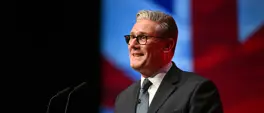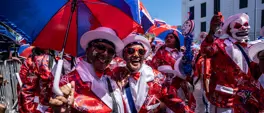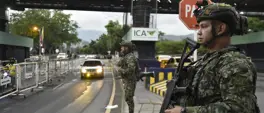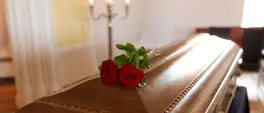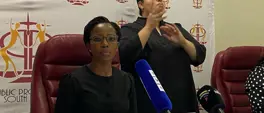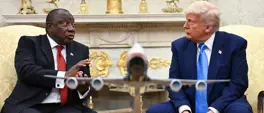Elections 2024: Coalition cloud hangs over South Africa ahead of results
Vukile Dlwati
1 June 2024 | 7:15Political analyst Professor Richard Calland said it’s clear that a coalition government was on the cards for South Africa, after the electorate ‘decided to change the power structure of this country’.
JOHANNESBURG – Coalition governance is the pink elephant in the room, after some 27 million registered South African voters had the opportunity to choose new leadership.
This reality precedes the establishment of the seventh democratic Parliament of South Africa.
Friday - the second day of vote counting saw political parties, the media and analysts descend on the national Results Operations Centre (ROC) in Midrand.
The numbers on the leaderboard, capturing national, provincial and regional votes, seemed to paint a picture of a potentially hung National Assembly, suggesting coalition talks among political parties.
This has also been suggested by pollsters who said the governing African National Congress (ANC) would not clinch a 50% plus one majority.
Speaking to Eyewitness News at the ROC, political analyst Professor Richard Calland, attested to this, saying the prevailing path to coalition governance “is a very delicate moment” after South Africans cast their ballots and “decided to change the power structure of this country”.
South African politics will never be the same, he said, as a new landscape emerged.
“Clearly, some kind of coalition government is going to be needed. How will it be negotiated will require great leadership, it will need leaders who can transcend the short term, who can put aside perhaps their own interests, the interests of their parties, for the sake of the country.”
The country’s politics has now carved two paths, he said.
“A high road where there is a marriage of liberal and progressive interests at the centre of our politics, versus a return to the old days of feudal approaches to power, to revoking the Constitution, to parliamentary sovereignty to end of the Bill of Rights, perhaps that would be a backward step.”
The high road, he pointed out, “brings greater investment and the prospects of a growing economy”.
With just under 70% of voting district numbers declared, the Council for Scientific and Industrial Research (CSIR) prediction model projected that the African National Congress (ANC) would clinch 40.5%, Democratic Alliance (DA) 21.59%, uMkhonto weSizwe (MK) Party 14.53%, Economic Freedom Fighters (EFF) 9.39%, and the Inkatha Freedom Party (IFP) 3.86% on the national ballot.
Eyewitness News understands that parties have been discussing power-sharing behind closed doors.
The DA has consistently taken the second spot after the governing ANC, while the MK Party takes third place, and the Economic Freedom Fighters (EFF) occupies the fourth spot.
DA leader John Steenhuisen reiterated that his party would never get into bed with the ANC or the EFF.
"We'll do what we can to do away with a doomsday election… it's a new political landscape" and the ANC has been "punished for its corruption" by the electorate – he said.
Meanwhile, MK Party spokesperson Nhlamulo Ndhlela did not entertain the notion of coalition talks and governance.
He said the party sought to nationalise mines and the central bank, but the Constitution was not enabling.
“If we're going to go into any discussions [of a] coalition, these are things that must be taken into consideration.
“Secondly, there must be parties that are like-minded in a policy, in the ideology, with us. We can't compromise that. If people don't want to go into a coalition with us, then that's fine,” he said.
Meanwhile, the EFF told Eyewitness News that despite the MK Party knocking it off third place, it was determined and confident of one day governing South Africa.
Speaking on the Clement Manyathela Show, EFF secretary-general Omphile Maotwe did not rule out coalition discussions with the ANC.
“We need to speak at the end of the day if there will not be an outright majority. We can’t say ‘we are not speaking’, even when South Africans have not fully decided in their majority who must rule. At the end of the day, we must form a government.”
The ANC’s bubble has certainly burst after the party remained steadfast that it would win an outright majority. It remains to be seen whom they will engage to pave the way for seemingly inevitable bed-sharing.
DA THREATENS IEC WITH COURT ACTION FOR GLITCHES
The 2024 general elections were tainted by mishaps, glitches, and notable delays, despite the commission having five years to prepare for polls.
Voters sometimes spent over eight hours at polling stations to cast their ballot. In some instances, power outages disrupted the voting process.
Some registered voters were turned away from stations they were not registered in – which stoked their ire and saw them abandoning their democratic right to vote.
To its defence, the Electoral Commission of South Africa (IEC) said voting where one had registered was a constitutional obligation.
Such grievances against the IEC attracted criticism from the electorate, media, and political parties.
The latest technical malfunction occurred on Friday when the IEC’s leaderboard displaying captured vote results blacked out for about two hours.
The commission said it regretted the situation, adding no data was impacted.
Steenshuisen has since threatened legal action against IEC for its mishaps on election day.
He hauled the IEC over the coals for the elections, saying “it was a complete shambolic state of affairs”.
However, the Human Sciences Research Council (HSRC) has since revealed that South Africans were satisfied with the voting process on election day.
Researchers found that 63% of the voting population was pleased with their experience when they cast their ballots.
FORMATION OF NATIONAL ASSEMBLY
The IEC is on course to release the final elections result over the weekend.
According to the Constitution, Parliament must hold its first session within 14 days after election results are released. Thereafter, members of Parliament (MPs) are sworn in, and they elect a president among their 400 members.
Using the candidate lists that parties submit before elections, elected parties are allocated seats in proportion to votes gained.
Get the whole picture 💡
Take a look at the topic timeline for all related articles.

